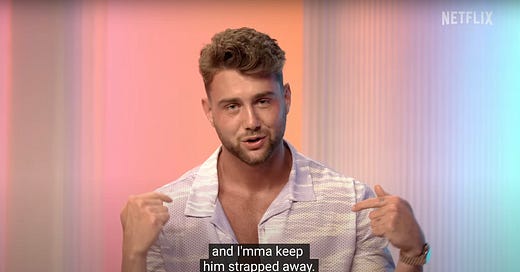Season of the bad boy
On 'Perfect Match,' the question is whether a 'fuckboy' can change—and whether anyone really wants him to be reformed.

The latest season of Perfect Match is all about the bad boy.
It’s not just that producers stacked the deck by casting men with reputations as womanizers and heartbreakers. The main dramatic thread of the first six-episode drop relies on the question of whether Harry, a 27-year-old Australian with the biggest “fuckboy” reput…



